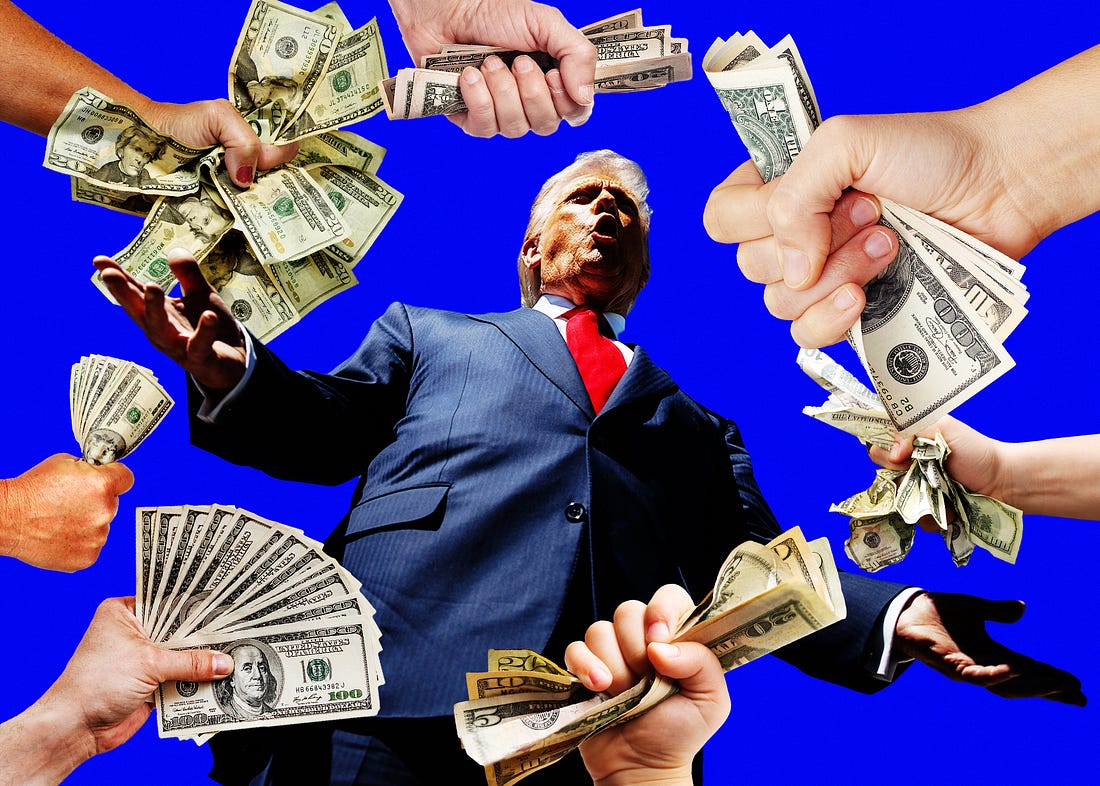|
 |
Good afternoon, Press Pass readers. From the top, I want to give a special shoutout to our Bulwark+ members. Your support is how we keep defending our democracy. If you ever feel the big outlets are missing an important story, let me know, and I’ll look into it. Bulwark+ members can always drop me a line. And if you’re not yet a member, please consider signing up today:
Today’s edition offers perspectives on two areas of potential corruption, but leavens them with a bracingly optimistic third item. Put aside the administration’s garish designs for the new White House ballroom: Its secretive financing is the real story. Are lawmakers interested in getting to the bottom of that? We’re all wondering, so I asked some lawmakers what their concerns might be.
In addition, the story of Trump’s latest pardon echoes the central themes of the stories Republicans often told about the Biden administration, especially during the GOP-led Oversight Committee’s investigation into the former president’s fitness for office. Bleak stuff in some ways, but don’t let these items demoralize you. They should instead empower you. I’ll explain what I mean below.
A White House Ballroom Fit for a Bribe
GOP lawmakers don’t mind that the full list of donors and amounts given is under wraps.
For describing itself as the “most transparent administration in history,” the Trump administration sure does value secrecy—at least when it comes to the question of who financed President Donald Trump’s future gilded ballroom, which is being planned to rise over the rubble of the former East Wing of the White House. As with so many things people care about, Republicans on Capitol Hill don’t seem to think people should care about it.
The White House has released the names of some of the donors to the ballroom. But not all of them. And not the amounts they’ve given. Indeed, in some cases, the White House has decided to just keep the details secret.
White House renovation projects have typically involved consulting with stakeholders around the capital and getting a signoff from Congress, which normally appropriates money to cover the construction and then provides oversight of the work. There have been exceptions in the past to these procedures, in cases where the renovation was privately funded; it’s on this basis that Trump acted unilaterally to level the parts of the White House he deemed obstructive to the new project. With the East Wing out of the way, ground has now been broken for a gargantuan new facility where the foreign and domestic elite who please the administration will occasionally be feted.
The White House shared with the press a partial list of individuals and companies that have donated money to fund the project, but it did not disclose the specific amounts they gave. Known ballroom funders include companies in technology, Big Tobacco, telecommunications, railroads, and the Hard Rock Cafe’s parent company.¹ The private individuals include cryptocurrency moguls, the Adelson family, the Winklevoss twins (the primary antagonists depicted by the actor Armie Hammer in the David Fincher/Aaron Sorkin film The Social Network), and at least two of Trump’s own ultra-wealthy cabinet secretaries: Commerce Secretary Howard Lutnick and Small Business Administrator Kelly Loeffler.
One of the important subplots of the last several years concerns the many ways in which Congress has farmed out its responsibilities to the executive. The ballroom-funding episode provides yet another illustration of this theme. Do lawmakers want a more transparent process? Do they even care if people with clear interests before the government may be currying favor with the president in this way? Should “ambition . . . be made to counteract ambition”? For members of the current majority, the answer to these questions is the same: no.
“We got so much going on up here, that’s one thing I ain’t worried about,” said Sen. Tommy Tuberville (R-Ala.).
When I asked Tuberville whether it’s ethical to keep these donations hidden from the public, he gave a somewhat less than ethics-forward answer: “Well, private funds are paying for it, so I don’t know, do they have to release that? I mean if somebody’s going to give $400 million dollars, they might not want it released.”
“You know I’ve not tracked that at all and wouldn’t be able to give you a good, intelligent answer,” Sen. James Lankford (R-Okla.) told me before asking me if the Trump administration has disclosed donors to other projects, such as the inaugural committee. When I confirmed those lists are public—and, in that case, quite rich in specific information—he replied, “Yeah, I’ve not jumped into that at all.”
Meanwhile, Democrats have added the secret donations to their growing list of potential corrupt acts by the Trump administration. But because Democrats are in the governing minority, they have little recourse to do anything about it at the moment—save send letters.
In an October letter, Democrats on the House Oversight Committee requested further information on the ballroom, including donor details and whether or not agreements were signed in exchange for the committed funds. The White House h
